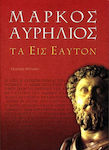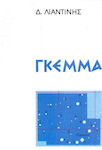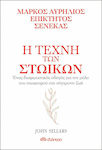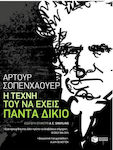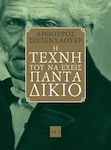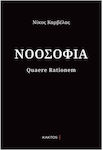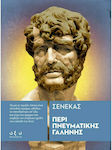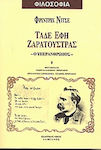Skroutz Buyers Protection
Θεμελίωση και ανασκευή, Επιχείρημα, νοηματική ταυτότητα και φιλοσοφική αξιολογίαCode: 159525
- Author: Στέφανος Δημητρίου
- Publisher: Vivliopoleion tis Estias
- Μορφή: Soft Cover
- Έτος έκδοσης: 2003
- Αριθμός σελίδων: 210
- Κωδικός ISBN-13: 9789600511109
- Διαστάσεις: 19×12
Στέφανος Δημητρίου

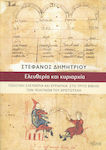

Religion & Metaphysics Books
"Όλα μπορούν να λεχθούν" ή υπάρχουν "εκείνα που δεν λέγονται";
from 8,95 €Added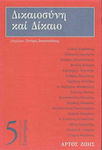
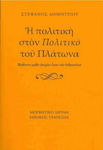


Similar products
All shops
Prices are calculated for:Luxembourg, Other Payment Options
- 10,56 €
- 10,61 €
- 11,45 €
- 11,43 €
Description
Can the philosopher win in his argument with the "eristic"? Can he not end up as a sophist when, in order to fight the sophist, he agrees to play his own "competitive" game? Yes, but on the other hand, how could the philosopher defend his position in a non-dogmatic way if he did not start from its relativistic questioning? How could he establish it if he did not change it in order to resist its reconstruction? The philosopher must enter the struggle, take the risk of becoming eristic, sophist, relativist, in order to become a philosopher. Justice is unfounded as long as it does not involve arguments in favor of injustice, freedom is unsubstantiated outside the struggle against slavery, etc. This difficult undertaking must be undertaken by the critical thinking of our time according to Stefanos Dimitriou.
Usually the philosopher is considered a defender of identity, of non-contradiction, against the sophist who exploits ambiguities to deceive. But in Plato's "Euthydemus" the sophist opposes the philosopher, on the contrary, with a strict interpretation of the principle of identity. Is the philosopher the one who accepts ambiguities while the sophist needs the unconditional acceptance of the principle of identity?
In light of Pantelis Basakos' relative research proposal, Dimitriou studies the Platonic and Aristotelian analyses and uses the critical standard they offer him against the dominant couple of typocracy and relativism today. Typocracy is identified with relativism precisely because it excludes ambiguities, because it insists on the principle of identity. According to the theoretical proposal of Kosmas Psychopaidis, the emancipatory rational proposition appears as the preservation of non-identity threatened by typocracy and relativism.
Specifications
- Subtitle
- Business, conceptual identity and philosophical evaluation
- Format
- Soft Cover
- Number of Pages
- 210
- Publication Date
- 2003
- Dimensions
- 19x12 cm
Important information
Specifications are collected from official manufacturer websites. Please verify the specifications before proceeding with your final purchase. If you notice any problem you can report it here.



































